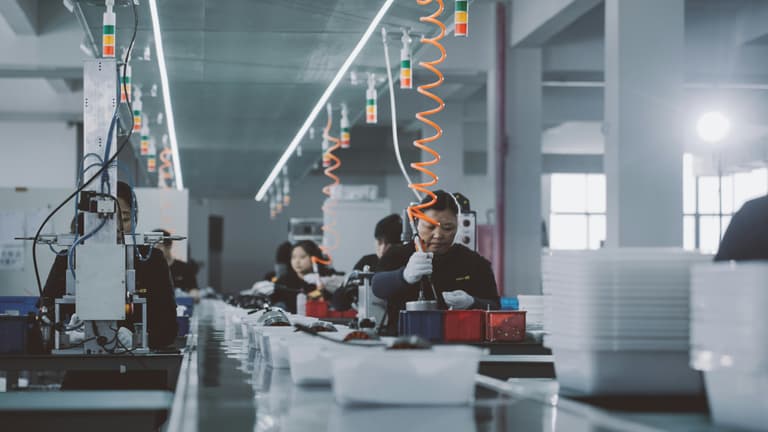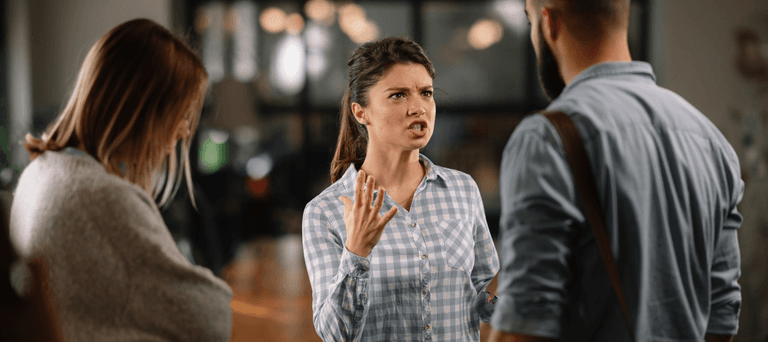Why Does Human Trafficking Happen? What You Need To Know


Let's dive into why human trafficking happens. Human trafficking still happens in the United States and is nothing short of modern day slavery. It involves human beings getting lured, subjugated, and trapped into exploitative situations they did not knowingly consent to and have no means of escaping. This article talks about what human trafficking is, how it occurs, and why it continues to exist and thrive today.
Human Trafficking Defined
The US Department of Justice prosecutes "trafficking in humans" in accordance with its definition stated in the Trafficking Victims Protection Act of 2000 (TVPA):
a) Sex trafficking in which commercial sex act is induced by force, fraud, or coercion, or in which the person induced to perform such act has not attained 18 years of age; or
b) The recruitment, harboring, transportation, provision, or obtaining of a person for labor or services, through the use of force, fraud, or coercion for the purpose of subjection to involuntary servitude, peonage, debt bondage, or slavery. There are many different types of human trafficking.
Who Are The Victims Of Human Trafficking?
Human traffickers target individuals with the most disadvantages and fewest legal and social protections. Poverty is a huge factor, further compounded by social minority status such as race, religion, LGBTQ+, disability, etc.
Women continue to be a top target for human traffickers, as there is a major demand for more women in the commercial sex industry coming from escort services, strip clubs, massage parlors, etc.) or to be used for indentured domestic work.
Young people are extra vulnerable to human trafficking if they come from juvenile justice systems like foster care, unstable homes with abusive family members, homelessness, or patterns of substance addition. Human traffickers prey on people with few attachments and runaway children often make the cut.
Recent immigrants to the country strapped for resources, as well as individuals brought into the country through illegal migrant smuggling, are all "fair game." It only benefits the traffickers that their victims are terrified of immigration authorities.
Migrant construction workers (who are predominantly men) are also likely to be exploited because they have nothing and cannot afford to say "no" even to criminally low wages for labor in inhumane conditions.
How Does Human Trafficking Happen?
There are many stages of human trafficking. A person finds themselves a victim of human trafficking through a variety of unfortunate circumstances.
Force, Fraud, Or Coercion
Traffickers like to target individuals who are down and out, have little to lose, or are already being abused and are desperate for a way out.
Traffickers often reach their marks, or targets, through casually befriending them on social media, or placing online classified ads for "models" and "actors." Once they make contact, online or in person, they gradually groom and coerce their targets with false promises of lucrative jobs, exciting education opportunities, and a better life in general.
Once "hooked," the victims typically find that their new job entails having to perform some commercial sex acts for/on clients — and it's neither lucrative nor glamorous, as promised.
One of the main ways exploitative gigs turn into a cycle of indentured servitude is known as "debt bondage." This is an ancient way to entrap desperate people into performing free or too-cheap labor. The "boss" pays for the worker's travel expenses and provides room/board/meals — and the worker is expected to work off this debt. Except the debt grows faster than the victim's earnings, never allowing them to save any money and leave.
Victims who are foreign nationals are also kept from escaping by the traffickers threatening violence to their families back home, seizing their travel documents, and threats of reporting to immigration authorities. For this reason, victims of sex trafficking caught in an illicit commercial sex act rarely cooperate with the police or legal representation assigned to them.
Hollywood Representations of Human Trafficking are Often Wrong
There is a stereotype, perpetuated by the entertainment industry, that human trafficking victims are suddenly and violently snatched up by strangers in the streets. While that is possible, it almost never happens this way in the United States: here, victims are typically trafficked by those they already know.
Many traffickers operate by befriending their targets first and relying on deceptive practices to prey on weakened, desperate individuals who don't have anyone watching out for them.
Victims' friends or bosses may be the ones to suggest and pressure them into "too-good-to-be-true" job opportunities that turn out to be in the commercial sex industry or require them to perform labor in very dangerous conditions.
Sadder yet, many victims of human trafficking are ushered into exploitation by people they know well: intimate partners as well as family members. Poverty, substance addiction, gambling debts: these are the problems that drive people to push their loved ones into forced labor and commercial sexual exploitation.
Once again, children are extra vulnerable in this setting. Archaic practices like forced marriage (where at last one person is still a minor) still happens in the USA — and that is most often arranged by the child's parents, usually for financial gain.
Citizens are urged to call the National Human Trafficking Hotline at (888) 373-7888 to report known or suspected cases of human trafficking to help combat trafficking at the civic level.
Why Does Human Trafficking Happen In The USA?
The two predominant types of human trafficking are forced labor and sex trafficking: both have a huge market in the United States with states like Texas and California leading the top locations for human trafficking.
Supply And Demand
Why does anything illegal — like commercial sex and drugs — exist for sale on the black market? Because enough people want to buy these things — and are willing to pay a high premium for them.
The High Reward/Low Risk Incentive
Human trafficking has proven difficult to prosecute: there is no paper trail and nobody, including the victims themselves, tends to cooperate with the investigation. On the rare occasion they are prosecuted for the criminal activity they've committed, the traffickers get relatively light prison sentences.
These factors make the human trafficking trade "worth it" for criminals. Human beings can be sold more than once, making them a highly profitable commodity. As long as the traffickers don't fear the consequences and continue to have a demand to fill, they will continue to take the risk.
Systemic Inequalities Yield Vulnerable Populations
In the USA, the heavy presence of compelled labor and sex trafficking is emblematic of underlying social and economic inequalities within the population. Human trafficking would not be thriving if there were no vulnerable populations to be exploited.
Likewise, the trade would not succeed without a steady stream of moneyed consumers of the goods and services begotten from human trafficking. One way or another, many Americans benefit from sex and labor trafficking through:
**Organized Crime: **criminal organizations classically profit from drugs and prostitution, which involves human trafficking.
Private Citizens: some people want to save money on domestic services and don't mind exploiting others to do it. Others want to peruse illicit sexual services, not realizing or caring that those services are being performed by captive persons who have no choice in the matter.
**American Businesses: **The US private sector has been shown to profit from associating with human trafficking-related operations. From retailers having their products manufactured by forced child labor in sweatshops to hotels looking the other way as their rooms are routinely used by sex traffickers, companies large and small have had their hand in proliferating this heinous practice.
Don't Let Human Trafficking Problems Seep Into Your Business
Did you know that it's often employees in managerial positions that fall into the slippery slope of labor exploitation? Furthermore, businesses can be sued for profiting off of human trafficking even if indirectly?
Education is key in the fight to prevent and end trafficking. EasyLlama's got the anti-human trafficking training program for your company's workforce that's simple to use, easy to digest, and quick to complete. It will leave your employees and leadership with an in-depth understanding of this grim but important topic — and ready to combat human trafficking in their own midst.
Written by: Maria Malyk





